
Topics
This weekend marked one of the deadliest in Iraq since the U.S. invasion began more than two years ago. In three days of suicide attacks, more than 150 people have been killed with nearly 300 wounded. We go to Baghdad to speak with Patrick Cockburn of the London Independent. [includes rush transcript]
Iraq is reeling from one of the bloodiest weekends since the US occupation began over two years ago.
Three suicide bombers hit Baghdad on Sunday following a deadly fuel truck bomb a day earlier that killed as many as 100 people.
At around 8:30pm on Saturday evening, a man detonated an explosive belt in a crowded marketplace in the highway town of Musayyib–35 miles south of Baghdad. The explosion erupted just as a tanker containing cooking gas was passing by. The blast triggered an inferno that destroyed dozens of buildings, including a nearby Shiite mosque where worshipers were emerging from evening prayers. The death toll now stands at 100. Over 75 people were wounded in what is being called the second deadliest bombing since the war began in 2003.
The attack prompted denunciations of the Iraqi authorities in parliament and calls for local militia to take up arms.
On Sunday, four suicide bombs rocked Baghdad, killing at least nine people. All four attacks occurred within a span of four and a half hours. On Friday, no less that 11 suicide bombers struck U.S. and Iraqi military targets in the capital and on the highway to the south, killing more than 33 people and wounding scores more. Three US soldiers were also killed over the weekend.
Patrick Cockburn of the London Independent writes “It is not just the number of the dead and injured that makes the bombings in Baghdad so much worse than London. A single incident of danger is easier to endure than relentless attack and the knowledge that the bombers were here yesterday and tomorrow they will return again.”
- Patrick Cockburn, journalist with the London Independent. He joins us on the line from Baghdad.
Transcript
AMY GOODMAN: Patrick Cockburn joins us on the line from Baghdad. Welcome to Democracy Now!
PATRICK COCKBURN: Good to hear from you.
AMY GOODMAN: It’s good to have you on. Can you talk about this weekend, what’s described as the bloodiest weekend since the invasion more than two years ago?
PATRICK COCKBURN: Well, he keeps on saying that it can’t get any worse here, but it keeps on happening. The suicide bombers and the U.S. generals [inaudible] a week ago were — might be ebbing, being able to launch more attacks than I’ve ever seen. As you said on Friday, there were 11. Everybody is very nervous, terrified in Baghdad. Traffic is down. A lot of people don’t go to the office [inaudible] until 10:00, because most of the attacks occur around 9:00. Although they happen later in the day, as well. So there’s a mood of pretty unrelenting fear in the capital.
AMY GOODMAN: Patrick Cockburn, the feeling right now in Baghdad about the administration in the United States. A discussion as I know there is in Britain of a, quote, “timetable.” The Bush administration has rejected this, although new documents have come out indicating London and Washington are considering this. What are people demanding in Baghdad?
PATRICK COCKBURN: They’re demanding two different things. You ask anybody in the street here, they all want the U.S. troops out, out of Baghdad, out of the cities. Occasionally you come across somebody who says it should be two stages: Baghdad and then the rest of the country. But it’s almost a universal opinion on the street that the U.S. troops should withdraw. They blame them for the continuing violence. They say that the U.S. convoys are attacked, they [inaudible] elections. Now, it’s a different — if you going inside the Green Zone and talk to official members in the government, they feel that if the — if there was a withdrawal now that large parts of the country, large parts of Baghdad would have been straightforward for the resistance. And they say, for instance, about a week to 10 days ago, in south Baghdad in a district called Dora, that one morning about 5 a.m. the insurgents simply took over the whole place. The police either fled or stayed inside their police stations. They say that could happen in the whole of Baghdad.
AMY GOODMAN: You have written, Patrick Cockburn, about the Seymour Hersh expose in The New Yorker magazine about Americans, the Bush administration accused of interfering in the Iraqi election. The response from Baghdad?
PATRICK COCKBURN: Well, I think that everybody in Baghdad, everybody in Iraq, thought that the U.S. was supporting Iyad Allawi, the prime minister in the election in January. They could never clear where the money, and he had a lot of money, was coming from. And so it doesn’t have too many surprises for me, the article in The New Yorker. I think what’s surprising was at the end of the day it was pretty ineffective, that Allawi didn’t get the votes that he had been hoping for. But, yes, definitely, there was interference in the election, and — but I think that that really was something that Iraqis had taken on board before the rest of the world.
AMY GOODMAN: Patrick Cockburn, you are in Baghdad, you come from London. The bombings there and the bombings in Iraq. Can you talk about the comparisons that you wrote about?
PATRICK COCKBURN: Well, there were four bombs in London, and this has created general outrage, perfectly understandable. It’s something that hasn’t happened before. But, you know, four bombs in Baghdad in a single day is practically a good day. Secondly, it’s frightening that those bombs in London were. I’ve spent quite a long time in places like Belfast and Beirut, and I’ve always found this to be true. It’s not that difficult to endure something very [inaudible] happening over one day. But if it happens day after day, week after week, and you know that there’s no reason it should stop, that really is much more difficult to bear. And I think that Iraqis are finding that, the knowledge that, you know, whatever happens tomorrow, we have one thing is certain, there’s going to be a lot more suicide bombs. That’s not easy for them. It wouldn’t be easy for anybody.
AMY GOODMAN: I wanted to get your response, Patrick Cockburn, to the Chatham House organization in London, their new report saying that the bombings — objecting to Blair’s claim that the bombings were not a result of British involvement in the occupations of Iraq and Afghanistan.
PATRICK COCKBURN: Yes. I think, I mean, of course, they’re quite right. And it’s a matter of common sense. I think it’s also something that polls show that most people in Britain see that there’s a very direct connection between Iraq and Afghanistan and what’s happened in the bombs in London. This has put Britain in the forefront of a battle that’s raised the political temperature. It’s always made it quite likely that Britain would be the target of a suicide bombing. I mean, to say that there’s no connection between the war in Iraq and these bombs, I think is very simple-minded. I don’t suppose that Tony Blair or any of his cabinet really believe this. They’re being [inaudible]. But indirectly, Iraq was very important in what happened.
AMY GOODMAN: Patrick Cockburn, I want to thank you for joining us, with the London Independent, speaking to us from Baghdad, Iraq.

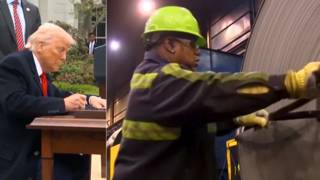
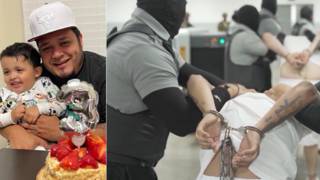
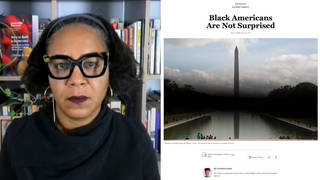
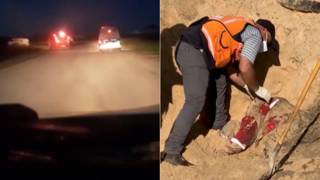






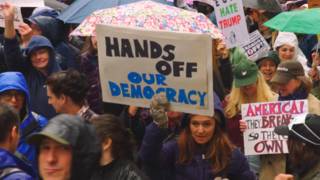
Media Options